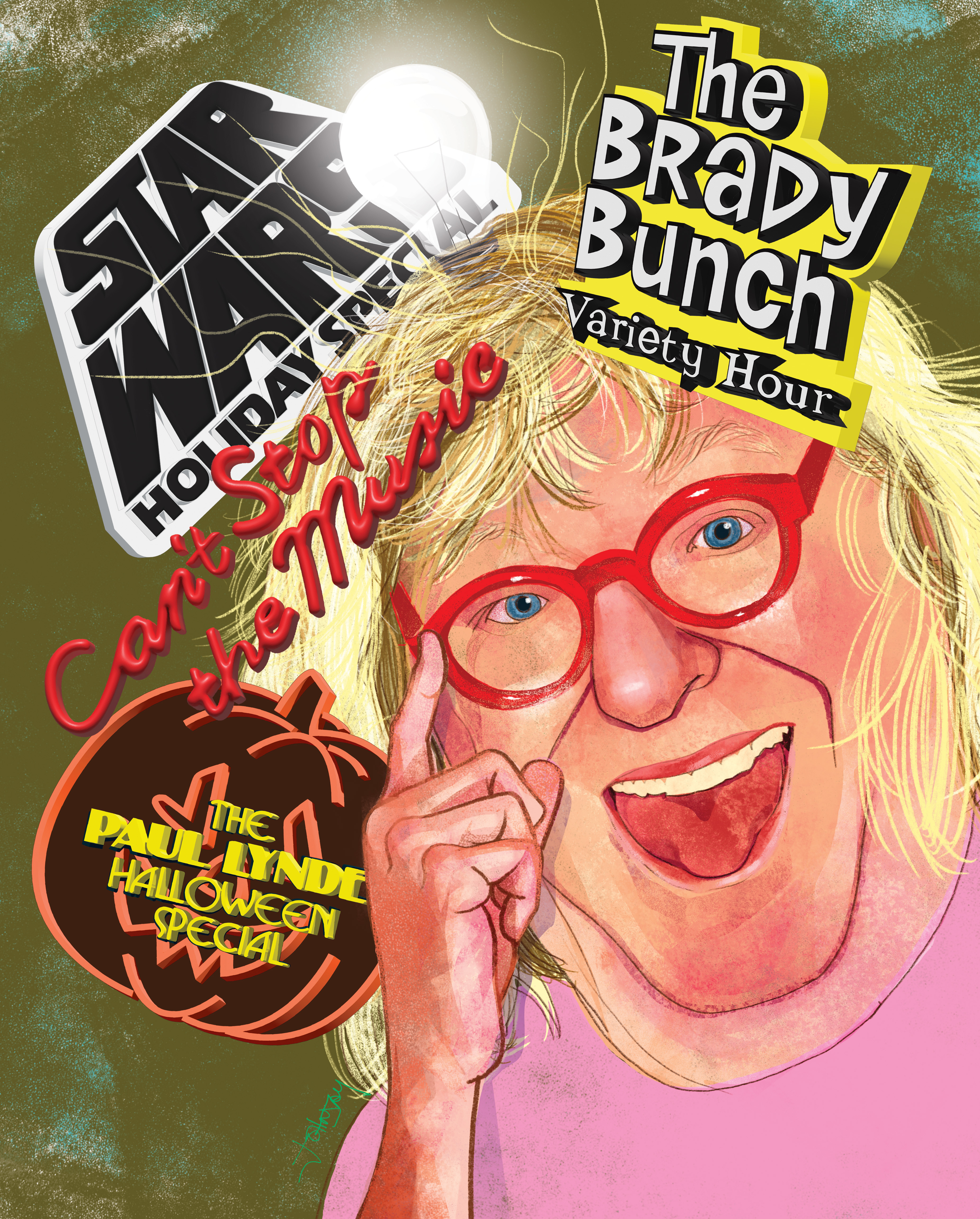The life lessons Bruce Vilanch learned from bad TV
The bespectacled comedian, actor, writer and 1970 graduate shares 10 things he’s taken from his show-biz misadventures.

Watched a Science Channel show the other night called “Engineering Catastrophes,” an hour of bridges falling down, buildings collapsing, sinkholes swallowing SUVs and more. When questioned about these calamities, not one of the responsible parties said, “It seemed like a good idea at the time.” Yet this is the default answer for anyone in the creative arts who is asked about a flop in which they were involved.
I thought about this when I started writing my book about the unnatural disasters I have been a part of in the show-biz realm for half a century. And I concluded that, why yes, they were all bad ideas to begin with. A title sprang to mind—It Seemed Like a Bad Idea at the Time. I mean, I saw them coming. But attached to them was a hefty paycheck, which means you can coerce yourself into believing you can make it work, whatever it is.
Look, no one sets out to do the worst television show of all time. Like NTSB spokespeople say when they try to explain why that plane flipped over on the runway, no one thing leads to a man-made disaster. They call it a cascading series of events that results in the ultimate calamity. Of course, a TV show is not the equivalent of a plane crash, but then you didn’t write the 1989 Oscars where Rob Lowe danced with Snow White. I did, although, ironically, I had nothing to do with that bit. Still, the stain won’t come out.
Almost as stubborn is the reputation of “The Star Wars Holiday Special,” which I co-wrote in 1978 from an idea George Lucas had that Wookiees would be the perfect central characters for an original musical. Can you spot the bad idea? Of course … but it was George Lucas! Surely he had something up his lightsaber that was going to make it work.
Uh, no. That seemed to be our job—and the details of how it happened are in my book. Distance has put all of this in perspective, and I herewith offer lessons I’ve learned from that debacle and other show-biz misadventures, from “The Paul Lynde Halloween Special” to the Village People movie “Can’t Stop the Music.” Apply them to your own life as you will.
- Get the money up front, before anybody realizes just how massive a sinkhole they’ve dug themselves.
- Look around to see who is approaching you with this idea. Check out their previous endeavors. And how much they’re offering. Be careful if someone is putting together something for a relative, or an, ahem, intimate friend. And ask for double.
- Don’t pretend you can fix a bad idea. Understand that many of Shakespeare’s works never get produced unless Denzel feels like doing them, but even he steered clear of “Titus Andronicus.”
- If someone approaches you with “The Ethel Merman Story” starring an actress who can’t sing, ask for triple. Warning: This is probably a vanity production, meaning someone close to the actress is helpless to stop her from doing it. Best not to be involved.
- It’s not rocket science. Although I am told one rocket scientist once said to another, after something blew up on the launch pad, “It’s not serious. It’s not like we’re making a movie.”
- If a script arrives with many fingerprints on it, or a list of people who tried and failed to make it work, you’d better love it before you take it on. Also, spend a little time with the producer who’s approaching you. They may be the problem.
- If you honestly, earnestly believe in something, do it. And own the flop if it doesn’t work out. In the theatre, there is a maxim for writers: It’s a great place to make a killing, but a lousy place to make a living. Ask Lin-Manuel Miranda, who never has to work again. Odds are you won’t author a smash. But you’ll never know if you always say no. Take the leap … but be very sure you believe in what you’re doing.
- Don’t take show business too seriously. It is a glamorous profession full of fun, whimsical, colorful people. Enjoy.
- Don’t take show business too lightly. It is a grueling, demoralizing playground full of bullies. Have a life outside of your work.
- Have fun. Believe in yourself and don’t be afraid to say yes, but always say to yourself, “Would I want to watch this?” If the answer is yes and the show is about a bunch of Kardashians … well I think we’re done here.
Bruce Vilanch has won Emmys, performed on Broadway and co-wrote 25 Academy Awards spectacles.


